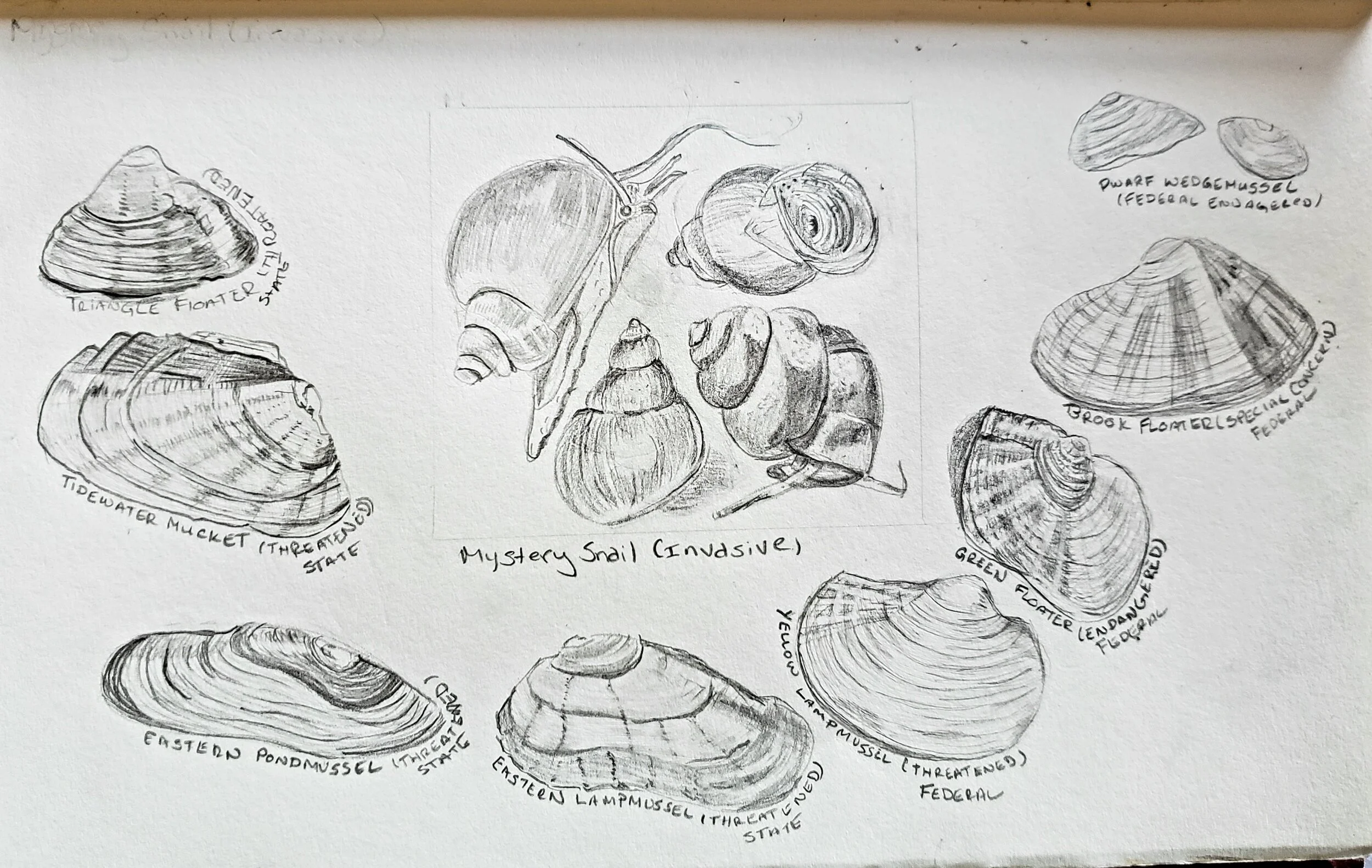The Problem with Mystery Snails
Sketch of New Jersey Freshwater Mussels and Mystery Snails
Inspired by a kayak trip offered by Gloucester County Parks & Recreation my next drawing will focus on the relationship between the Chinese Mystery Snail and freshwater mussels. Kevin, a field technician for the park, led the group out onto Wilson Lake at Scottish Run State Park. During the trip my kids started to collect large snail shells floating on the lake’s surface. Kevin informed us they were an invasive species called the Chinese Mystery Snail.
In spring the female snail gives birth to live fully formed offspring. The snails seem to "mysteriously" appear thus giving them their name. Native to East Asia, they were first brought to the United States in the 1800's, as a potential food source. Decades later they were introduced into the New York waterways.
One issue with the snail population is they compete for resources with native species, such as the freshwater mussels. According to the National Resources Conservation Service nearly three quarters of North America's freshwater mussel species are listed as endangered, threatened, or of special concern. New Jersey hosts twelve native species, all of which are classified on one of the lists.
Mussels are excellent indicators of water quality. Mussels siphon pollutants, algae, and bacteria from the water, and certain species can filter as much as ten gallons of water per day. Additionally, they hold toxins in their cells enabling scientists to research waterway pollutants.
Mystery Snails, and other invasives are just one contributing factor adversely affecting the mussel population. Other problems include but are not limited to industrial pollution, dredging, water flow alterations and loss of host fish for breeding.
These freshwater mollusks are an ecological asset. To learn more I have included a few links on these fascinating creatures.
https://xerces.org/endangered-species/freshwater-mussels/about
